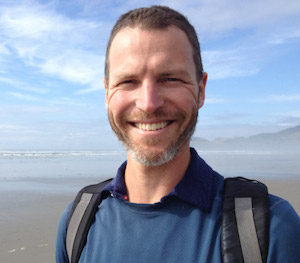Commentary on Parshat Chukat (Numbers 19:1 – 22:1)
Several years ago, I spent the day driving through the Negev with Rabbi Arik Ascherman of Rabbis for Human Rights. We visited Bedouin communities under threat of destruction from the Israeli government. In the eyes of the state, Rabbi Ascherman explained, these were “unrecognized villages.” This phrase, to me, was chilling. The Bedouin communities we saw posed no threat. They simply were working to maintain their homes and livelihood. Their homes being “unrecognized” exposed the fact that, to the State of Israel, they were not seen as worthy of recognition.
I thought of the early modern Zionist rallying cry of “a land without a people for a people without a land.” While the context today is different, the government’s orientation aligns with the missteps of a past generation. The effort to willfully “unrecognize” many of Israel’s non-Jewish inhabitants is, sadly, still pervasive.
In Parshat Chukat, we witness a generational shift that invites us to consider contemporary action in relation to the past. In a perplexing narrative, God tells Moses and Aaron that they will not enter the Promised Land. The incident preceding the decree is Moses’ striking the rock to bring forth water, rather than speaking to it as God had instructed. The episode is all the more confusing in that it partially repeats a scene from Exodus, in which God does command Moses to strike the rock. So why now is Moses’ action so offensive as to prevent him and Aaron from fulfilling their 40-year journey?
Sign up to receive Torah from T’ruah in your inbox each week!
The Torah seems to suggest that different approaches are called for in different generations. The first incident occurs right after liberation, while this one comes 40 years later, with the people on the brink of crossing the Jordan. What was needed then, when we were emerging from slavery, is not what is needed now, when the next generation stands ready to enter the land. Perhaps God’s decree is not a punishment, but simply a recognition that time for new leadership has come, and that a new manner of guiding the people must emerge.
 We exacerbate conflict and suffering by continuing to tackle issues as they have been approached in the past. Denying others’ identity and existence was wrong then, and it is wrong now. But we can also say that the generation of early Zionists inhabited a much more precarious time for the Jewish People; in today’s established State of Israel, the injustice of not recognizing the rights of its Bedouin citizens is so much clearer. And while in the past we may have embraced the notion of the Land of Israel as solely for Jews, in today’s world we must see beyond this.
We exacerbate conflict and suffering by continuing to tackle issues as they have been approached in the past. Denying others’ identity and existence was wrong then, and it is wrong now. But we can also say that the generation of early Zionists inhabited a much more precarious time for the Jewish People; in today’s established State of Israel, the injustice of not recognizing the rights of its Bedouin citizens is so much clearer. And while in the past we may have embraced the notion of the Land of Israel as solely for Jews, in today’s world we must see beyond this.
Right now, Bedouin citizens face an increasing threat. Half of the Negev’s 200,000 Bedouin Israelis live in “unrecognized” villages. One of them is Umm Al Hiran, which is slated for destruction to make way for the new Jewish Israeli town of Hiran. On April 11 of this year, after weeks of police intimidation and threats of demolition, about 170 Bedouin residents of Umm Al Hiran were coerced into signing a “voluntary” agreement under which they will move to the nearby Bedouin township of Hura. Saleem Abu Al-Qian, a village resident, told Haaretz: “We signed this agreement with tears in our eyes. This was not a negotiation, this was forcing us to agree. They told us: ‘if you don’t sign, we’ll come and demolish…’” Those families will be leaving lands they have lived on since the 1950s, when they were moved there by the IDF from their original lands in what is today Kibbutz Shoval. The Israeli Supreme Court itself acknowledged that they are not “trespassers,” but nevertheless justified their expulsion.
Hiran is a flagship project of the OR Movement, to which the Jewish National Fund has contributed $3.5 million in 2014 alone. The OR Movement claims to be “building the future of Israel.” Yet is this indeed Israel’s future, as a nation which continues to ensure the livelihood of its Jewish citizens at the expense of others?
There is another way. Israeli civil society organizations have prepared an alternative master plan, which involves the recognition of 35 currently unrecognized villages, and in which Jews and Bedouin can live side by side in the Negev. In this model, which represents a more sustainable and secure path for Israel’s future, all peoples are recognized, and their relationship to the land is honored.
Let us not strike the rock again.
Rabbi Benjamin Barnett is the rabbi of Havurah Shalom in Portland, OR.

